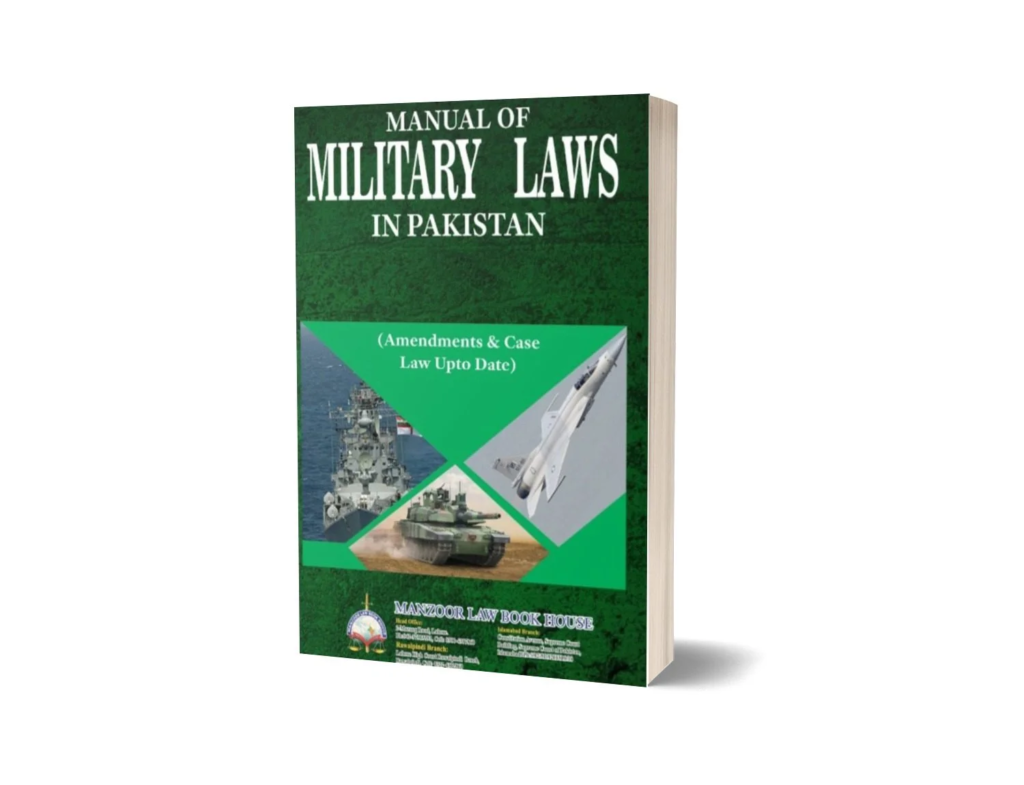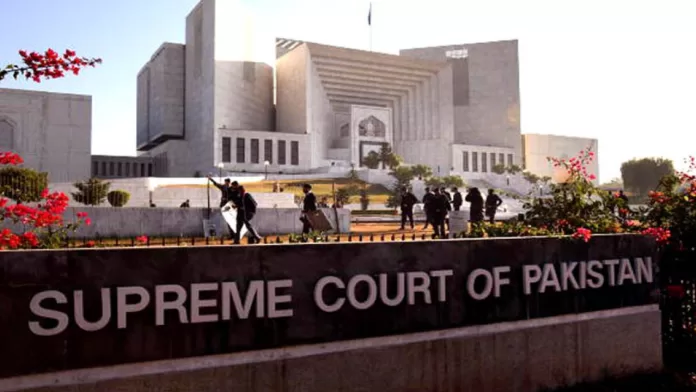Blatant nepotism and rampant corruption weakening the country’s integrity and sovereignty, all signs are pointing to a dangerous slide into anarchy. The Supreme Court (SC) does “note” the corruption, with respect that’s all they have done for the past three years. While military takeovers can never really be justified, where is the constitutional mechanism in the type of democratic dispensation availing to rescue the country from the mercy of those looting it at will? Trying to keep the Constitution aloft we are on a fail-safe timeline and would be lucky to exist as a country in the future, even as a Balkan-ized one!
Far from protecting are citizens from exploitation of multi-faceted manifold kind, our Constitution protects those who commit fraud and are involved in chicancery on those unfortunate people who voted them into power in the exercise of “democracy”, albeit with 45% fraudulent votes. Those elected to uphold and implement the rule of law flout it with impunity. Despite rhetoric and drama heightening public frustration, the courts of law procrastinate endlessly, mired in a legal quagmire of technicalities. Given constitutional cover to secure their ill-gotten means, our rulers are openly brazen about their utter contempt for the rule of law, eg PM Gilani scornfully spurning the Supreme Court (SC) diktat to write about Zardari’s $ 60 million to the Swiss. What will happen on March 21 in the SC? With previous form as the guide, more of the same! Is it any surprise Gilani wants to refer the issue to a Parliament notorious for being subject to influence by money, prime example being the indirect Senate elections, that too by an electoral college that came into being on fraudulent votes?.
The malicious open season on the military by a motivated section of media was inevitable, a paid-for campaign meant for a singular deadly objective, to emasculate their effectiveness and pre-empt any attempt at intervention to stop the prevailing rot. With only a handful of our “impartial” fourth estate asking pointed questions about Haqqani not coming clean before the Memogate Commission, the failings of Mansoor Ijaz notwithstanding, at least he propped up his credibility by submitting his BlackBerry, E Mail, telephone records, etc for scrutiny. What are we to infer if Hussain Haqqani keeps on filibustering, that too tongue-in-cheek “on national security grounds”, the very thing he is alleged to have undermined?

When a peaceful assembly becomes a mob and an act of violence turns it into a riot, and the police force meant to maintain civil order is insufficient and incapable of suppressing the resulting disturbances, civil authorities requisition military assistance. The rule of law dictates the rioters cannot be dealt with without a magistrate on the scene. With the magistrate usually absent in real terms more often than not, the conscience of the military officer is put to test applying Clause 7, Chapter 9 of the Manual of Pakistan Military Law (MPML) “in exercising the common law right of repelling force by force, to assume such exceptional powers and to take such exceptional measures as may be necessary for the purpose of restoring order.” Firing on the rioters must be specific and effective, strictly controlled to obviate greater bloodshed, i.e while every bullet must count it must be made abundantly clear to the rioters that it is no bluff. Firing of blank rounds is forbidden as it may encourage the crowd to test the bluff and thus cause greater bloodshed.
A Court of Enquiry must be satisfied that the judgment of the military officer in “Aid to Civil Power” was in good faith. Some people being killed to avert a greater bloodshed, the inherent “Doctrine of Necessity” is technically “murder” by another name, were the deaths among the rioters necessary and was minimum force used? To describe the actions of military in attempting to stamp out a terrorist mindset bent upon imposing their will alongwith, cruelties and torture on a hapless, defenceless people. Burning with anger and frustration the Pakistan Army units stood aside in Swat, immobilized because of Federal Constitutional inaction and the procrastination of the Khyber Pakhtoonkhwa (KP) govt, both bent upon appeasement. When Maulana Sufi Mohammad thankfully shot off his mouth the Army had enough, the international and internal clamour forced both the Federal and Provincial govts into belatedly “requisitioning” their sources, instead of the “magistrate on duty” read “constitutional authority. The success of the Army’s brilliant counter-insurgency campaign was achieved at great human and material sacrifice, to what purpose?
Written by me in 1995 (and again in 2005 and 2009), the answer to the question “Why do Martial Laws Fail?” was “the initiators of extra-Constitutional rule ride into town on tanks with the lofty Aim of saving the country, relying on that platonic national purpose to make themselves credible but they soon adjust the Aim to more material (and less patriotic) reasons of self-perpetuation. Martial Laws fail because the Armed Forces get themselves involved in the working of the State of which they do not have correct knowledge and soon surround themselves by sycophants who are more often than not holdovers from previous governments. The application of the “doctrine of necessity” goes horribly wrong when those that apply it forget that their role is limited, to support caretaker technocrat governance for a short period and not become a part of it. They are soldiers and when they become part of the wrong they came to correct, they force-multiply the wrongs into a catastrophe”.
Dubious electoral process and corrupt regime notwithstanding removing an elected govt by force is still treason, there is still a substantial difference between the removal of a govt and a military takeover. The acid test of their sincerity of purpose, not one single person in uniform in the Caretaker Administration appointed by the Supreme Court (SC) and neither any manipulation of the affairs of State by the intelligence agencies. What about treason? To quote my article of June 29, 1995, “If the cause is just and their motivation pure, why should soldiers fear their fate if forced by circumstances to violate that oath? Acting in good faith and without excesses, they can always face up to the consequences of their actions”, unquote.
There is seething anger and frustration among the uniformed rank and file at the state of the country’s affairs and anyone who says so is either dangerously misinformed or a liar. This has not affected their discipline and/or commitment. Bolstered by a strong belief that they are the ultimate guarantors of the security and well-being of their nation, soldiers continue to die on a daily basis fighting the counterinsurgency. Those up the ladder have a choice about taking a “calculated risk”, those fighting in the mountains do so with absolute courage of conviction that their ultimate sacrifice serves to protect their country and its people from harm.
There is seething anger and frustration among the uniformed rank and file at the state of the country’s affairs and anyone who says so is either dangerously misinformed or a liar. This has not affected their discipline and/or commitment. Bolstered by a strong belief that they are the ultimate guarantors of the security and well-being of their nation, soldiers continue to die on a daily basis fighting the counterinsurgency. Those up the ladder have a choice about taking a “calculated risk”, those fighting in the mountains do so with absolute courage of conviction that their ultimate sacrifice serves to protect their country and its people from harm.
The oath of the soldiers requires them to protect the Constitution “even to the peril of their lives”. The Catch-22, who will protect the people the Constitution is meant to, “even to the peril of the nation’s future?”
Sitting pretty on bagfuls of loot, why should our rulers fear the Ides of March?
Courtesy: The News




